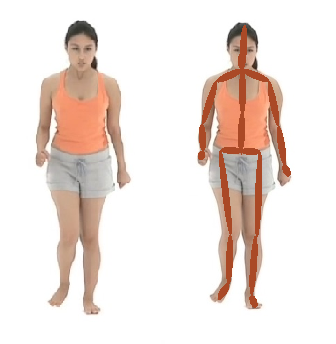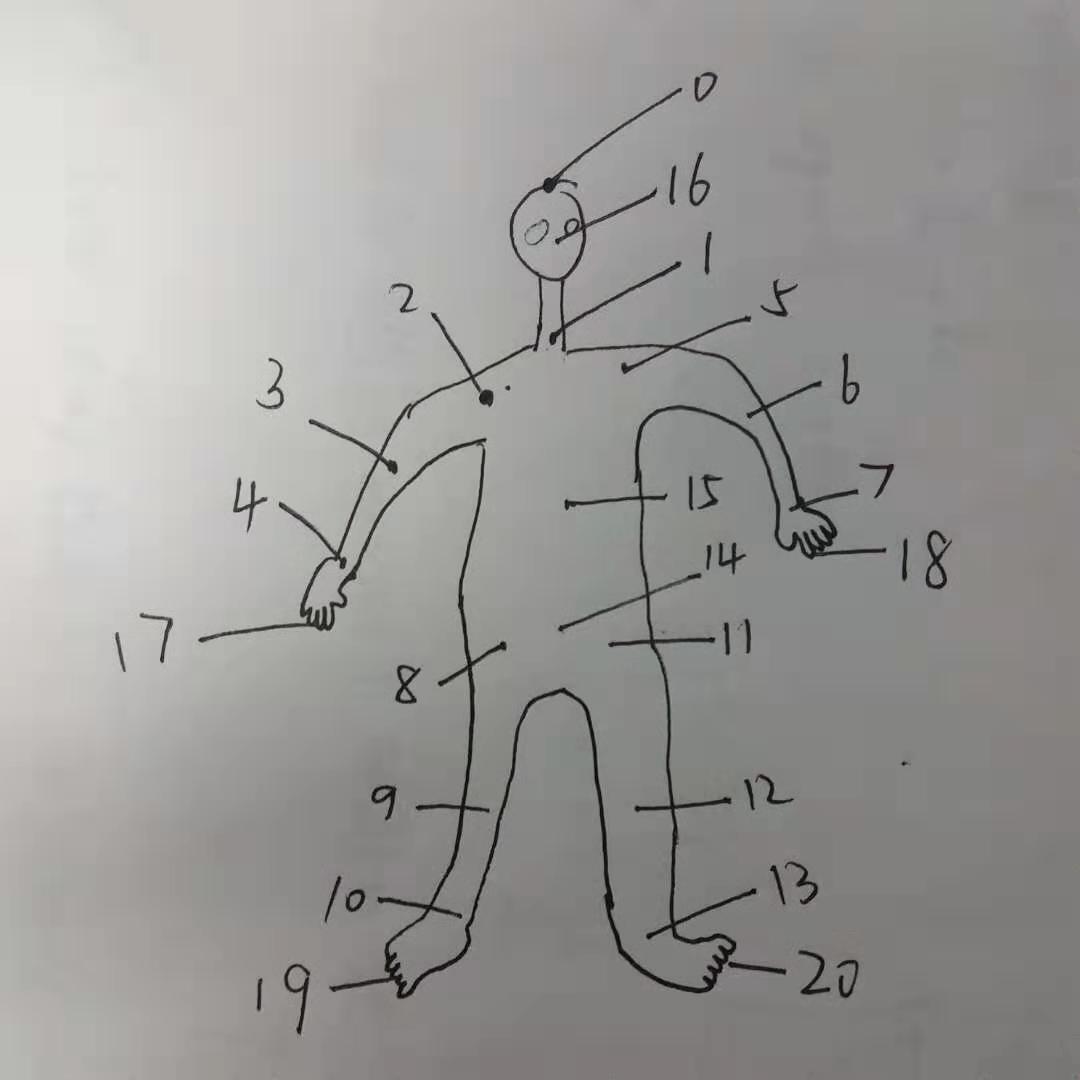A tensorflow implementation of VNect: Real-time 3D Human Pose Estimation with a Single RGB Camera.
For the caffe model/weights required in the repository: please contact the author of the paper.
- Python 3.x
- tensorflow-gpu 1.x
- pycaffe
- Drop the pretrained caffe model into
models/caffe_model. - Run
init_weights.pyto generate tensorflow model weights.
run_estimator.pyis a script for video stream.- (Recommended)
run_estimator_ps.pyis a multiprocessing version script. Notice that inrun_estimator.py, the 3D plotting function may shut down occasionally depending on the matplotlib version .run_estimator_ps.pyresolves this issue. run_pic.pyis a script for a picture.
- (Deprecated)
benchmark.pyis a class implementation containing all the elements needed to run the model. - (Deprecated)
run_estimator_robot.pyadditionally provides ROS network and/or serial connection for communication in robot controlling. - (Deprecated) The training script
train.pyis not complete yet (I failed to reconstruct the model: ( So do not use it. Also pulling requests are welcomed.
[Tips] To run the scripts for video stream:
-
click left mouse button to initialize the bounding box implemented by a simple HOG method;
-
trigger any keyboard input to exit while running.
- With some certain programming environments, the 3D plotting function (by matplotlib) in
run_estimator.pyshuts down. In this case, userun_estimator_ps.pyinstead. - The input image is in BGR color format and the pixel value is mapped into a range of [-0.4, 0.6).
- The joint-parent map (detailed information in
materials/joint_index.xlsx):
- Here I have a sketch to show the joint positions (don't laugh lol):
- Every input image is assumed to contain 21 joints to be found, which means it is easy to fit wrong results when a joint is actually not in the picture.
For MPI-INF-3DHP dataset, refer to my another repository.
- original MATLAB implementation provided by the paper author.
- timctho/VNect-tensorflow
- EJShim/vnect_estimator



